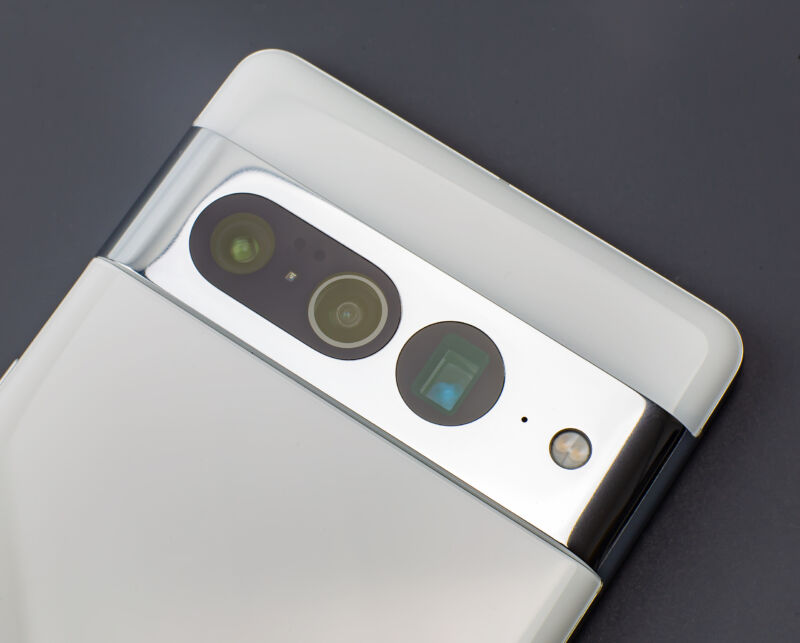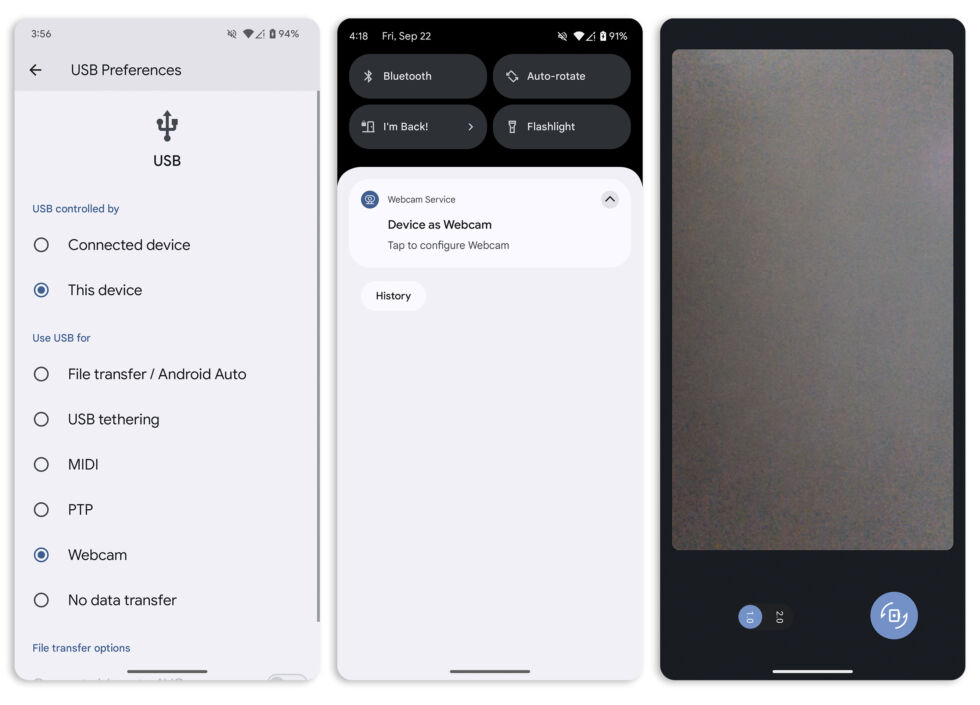
Here’s a fun new use for your Android phone: A PC webcam! In the latest Android beta, plugging a phone into a PC will reveal a new option in the USB Preferences menu for webcam functionality. Just pick that option instead of the default “file transfer,” and the phone camera will register itself as a webcam. Then you can fire up Zoom and start video calling.
The Android build with this feature is “Android 14 QPR1 Beta 1.” Android’s getting confusing with all these overlapping betas, but the current stable version is still Android 13. Android 14, currently on its 10th beta/developer preview, will most likely be out alongside the Pixel 8 in October. Android 14 QPR1 is the quarterly release after the first stable build of Android 14, and it should be out around December. (QPR stands for quarterly platform release.) These happen between major releases, often marketed as “feature drops.” Right now, Android 13 is technically “Android 13 QPR3.”

Android is technically copying this feature from iOS. In Apple land, this is called the “Continuity Camera,” and will work wirelessly between an iPhone and a Mac, which is pretty cool. As usual, the Android version is much more flexible since the feature presents as a generic USB webcam. It should work on almost everything, like Windows, Mac, Chrome OS, and probably Linux. You can even plug an Android phone into another Android phone and use the first phone’s camera as the webcam for the second phone.
A phone has a lot more thickness to work with than the top half of a laptop, so most phone cameras will outclass any camera that has been crammed into the paper-thin screen portion of a laptop. The hard part is coming up with a viable phone mount that puts the camera in the right location. You’ll also still need some kind of microphone, as you can’t use the phone’s mic yet. Hopefully that gets fixed in time for the stable releases.
https://arstechnica.com/?p=1970475

